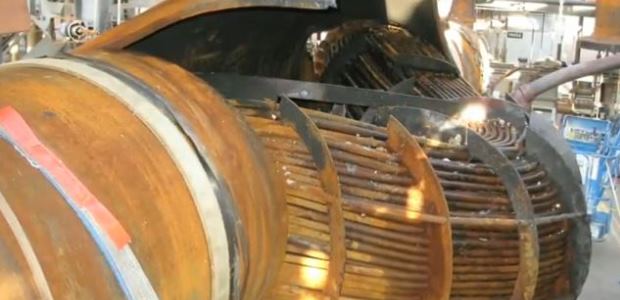
Judge Hearing Appeal of Tesoro Anacortes Fine
Seven workers died in an explosion when a heat exchanger failed in the petroleum refinery on April 2, 2010. The Washington State Department of Labor & Industries cited Tesoro for 39 willful violations and five serious violations, fining the company $2.39 million.
Five years after the Washington State Department of Labor & Industries issued a $2.39 million fine to Tesoro Corp., the largest fine in that agency's history, the company's appeal is being heard. L&I announced that an industrial appeals judge would hear arguments starting July 21. L&I cited Tesoro for 39 willful violations and five serious violations of state workplace safety and health regulations after investigating an explosion at its Anacortes, Wash., petroleum refinery. Seven workers, five men and two women, died in the explosion on April 2, 2010.
A heat exchanger at the petroleum refinery blew apart along cracks in welded areas, investigators for L&I and the U.S. Chemical Safety Board (CSB) determined. L&I found that Tesoro did not correctly test the equipment for cracks as required by state law and industry standards.
Tesoro filed an appeal on Oct. 22, 2010; the hearing has been delayed because of "numerous legal motions," according to L&I.
"The loss of seven lives was a needless tragedy for the families, the community, and for our state," said Anne Soiza, assistant director of L&I's Division of Occupational Safety and Health. "Prevention of catastrophic chemical incidents is of paramount importance, and we continue to work diligently to that goal."
L&I reported that this case was a factor in the state legislature's 2011 revision in the law, so that employers now must correct hazards while an appeal is pending, rather than waiting for a final decision. "Workers in the state are safer since the law was changed," Soiza said. "Employers have to step up and fix serious hazards, even if they appeal the violations, rather than putting it off for months or years until the appeal is final."
The hearing is scheduled to continue the rest of this week and on July 28, July 30-31, Aug. 25-28, and additional days in September through December. The hearing is scheduled to end Dec. 29. After the judge issues a proposed decision, it will be reviewed by the Board of Industrial Insurance Appeals, which will issue a final order.
CSB's final report on the explosion was approved on May 1, 2014. It said a condition called High Temperature Hydrogen Attack weakened the carbon steel in the heat exchanger that exploded. HTHA causes fissures and cracking and occurs when carbon steel equipment is exposed to hydrogen at high temperatures and pressures, according to the report, which said HTHA can accumulate in high-stress areas in carbon steel, such as the welds where this heat exchanger failed. "It is very difficult to inspect for HTHA because the damage might not be detected; it can be microscopic and may be present only in small localized areas of equipment. In addition, equipment must already be damaged by HTHA for equipment inspection to identify HTHA. Successful identification of HTHA is highly dependent on the specific techniques employed and the skill of the inspector, and there are few inspectors who have this expertise. Inspection is therefore not sufficiently reliable to ensure mechanical integrity and prevent HTHA equipment damage," the report states. In it, the board called for the use of inherently safer technology, calling it "a better approach to prevent HTHA."